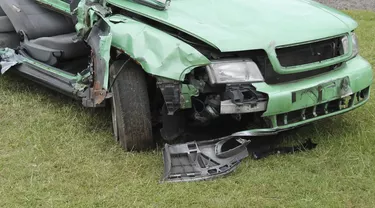
Collision coverage is the kind you want to have if your vehicle is totaled, either because of an accident or due to an act of nature. But it will bump your auto insurance premiums up a bit, so drivers are often eager to drop it as soon as they reasonably can. Knowing when it's the right time depends on personal factors and your car.
Your Car’s Value
Video of the Day
Collision coverage pays your car's fair market value if it's destroyed, or for repairs if the vehicle is salvageable. Some policies also have the option of other features like towing and roadside assistance. If you can come out of pocket for these things without too much pain, you probably don't need collision coverage. If your car is older, you might consider canceling collision coverage and setting the money aside instead so you'll have it to pay for repairs or to purchase a new vehicle. Insurance.com suggests using the 10-percent rule: think about dropping the coverage when your annual premiums equal 10 percent of the car's current fair market value.
Video of the Day
The Status of Your Loan
Dropping collision coverage is usually only an option if you own your vehicle outright. If you haven't completely paid off the loan yet, lenders typically require collision coverage until this time. It's usually mandatory for leased autos as well.